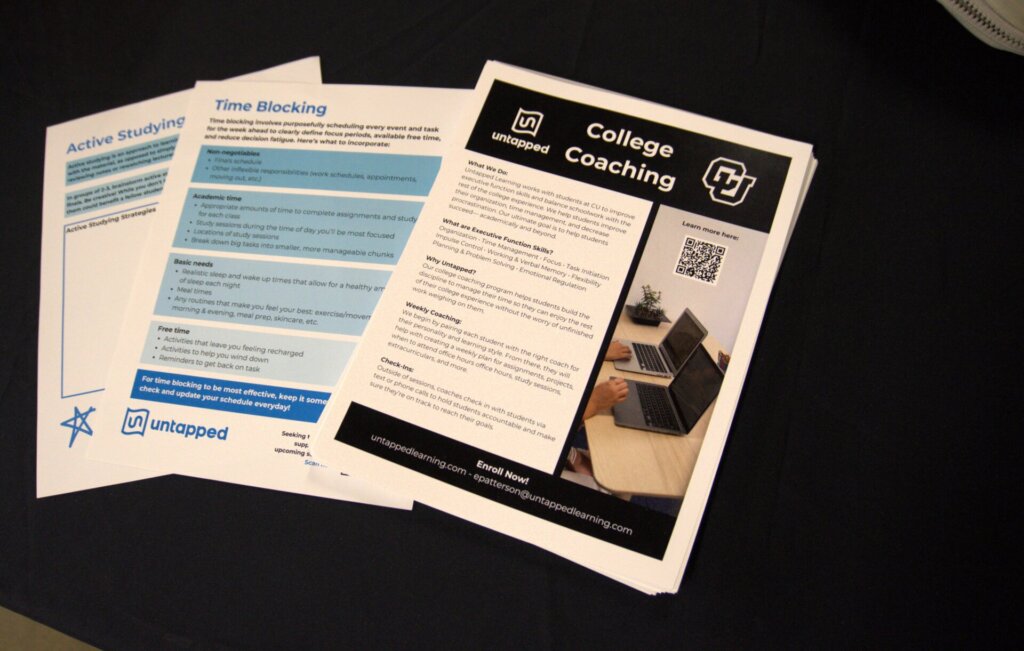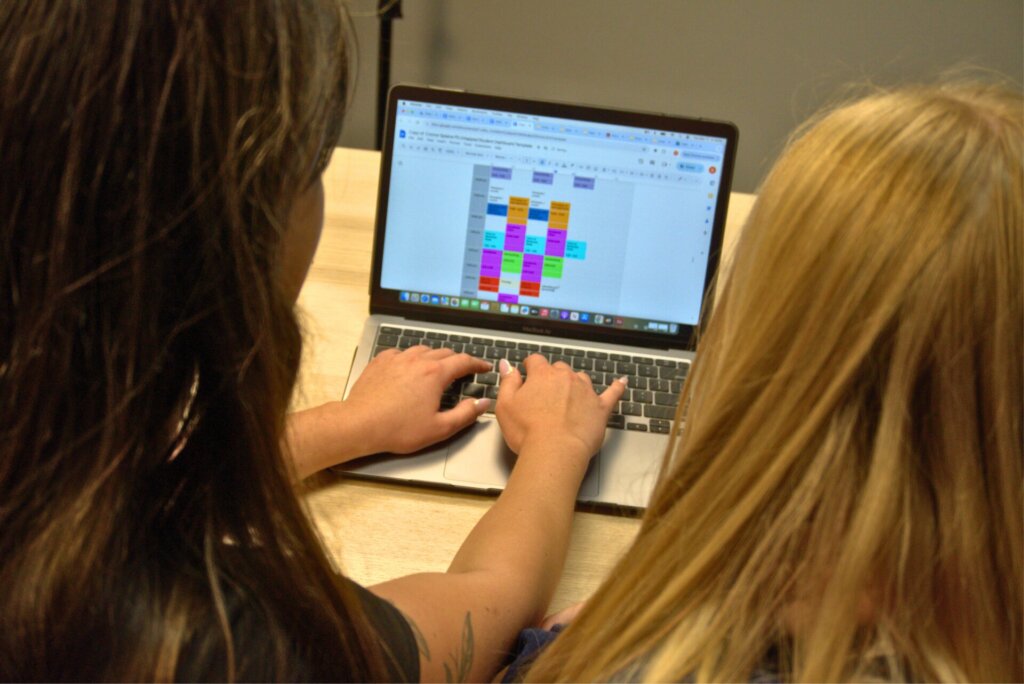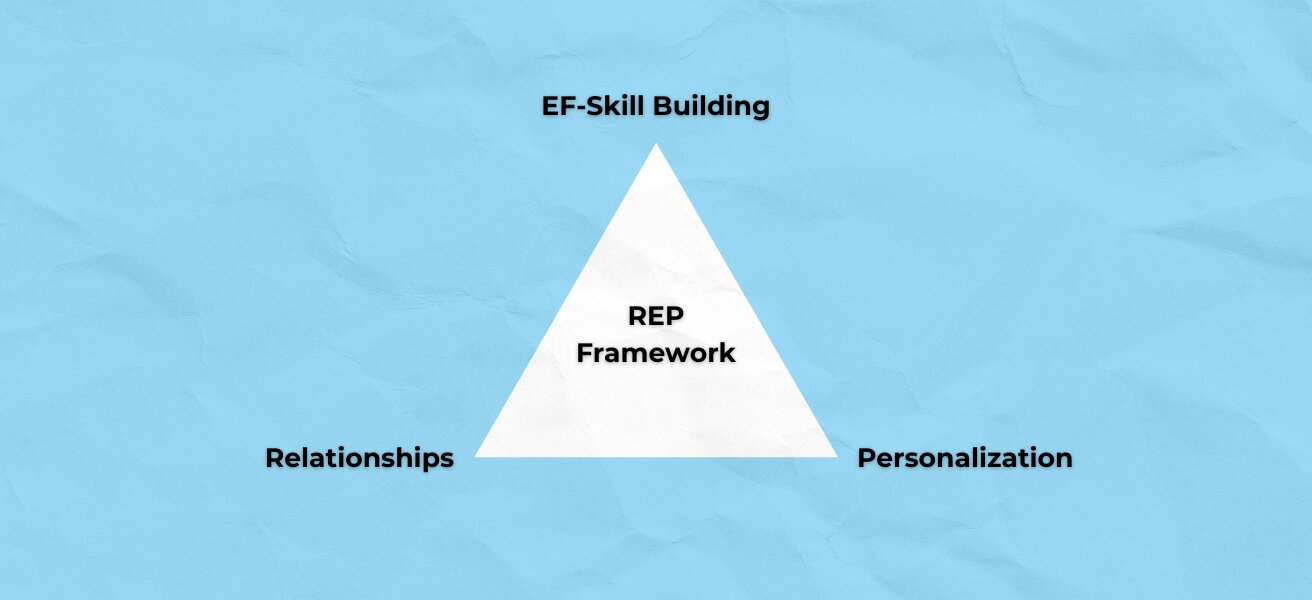When a bright, motivated student continues to struggle in school, it’s easy to assume the problem is academic. Maybe they need tutoring. Maybe they need to try harder. But often, the real challenge isn’t what they know, it’s how they manage.
Skills like planning, time management, and follow-through, skills students are expected to have but are rarely taught directly, can make or break their academic experience. These are known as executive function skills, and that’s what we specialize in teaching at Untapped Learning. We don’t offer band-aid solutions. We don’t just check for missing assignments. We coach executive function using a research-backed model that helps students build habits, reduce stress, and feel more in control. We call it the REP Framework, and it’s what sets us apart.

What Is Coaching Executive Function?
Coaching executive function means helping students build the mental systems that support success: initiating tasks, organizing time, managing stress, staying flexible, and following through. While tutoring focuses on subject matter, executive function coaching focuses on process—how students approach their schoolwork, their routines, and their responsibilities.
That’s where REP comes in.
The REP Framework: Our “Special Sauce”
Our entire coaching model is built on three pillars:
Relationship-Building
Every student is paired with a coach they connect with, someone who builds trust, provides consistent support, and helps them stay accountable. These relationships drive motivation and open the door for growth.
EF Skill-Building
We explicitly teach the skills students need to manage school and life, like goal-setting, time management, task initiation, organization, and emotional regulation. These aren’t abstract ideas; they’re tools students use weekly with real feedback.
Personalization
No two students are the same. Our coaching is flexible, adapting to individual needs, learning profiles, schedules, and family dynamics. Whether a student thrives on visual tools, verbal processing, or calendar planning, we meet them where they are.
Together, these three elements form a powerful structure that helps students go from reactive to proactive, both inside and outside the classroom.
A Week in the Life: Coaching in Action
Here’s what executive function coaching might look like for a student named Eli.
Eli is in middle school. He’s sharp, thoughtful, and full of ideas, but his school life is a mess. He forgets to turn in assignments, leaves studying until the last minute, and feels overwhelmed more days than not.
In his first few coaching sessions, Eli’s coach focuses on building a connection. They talk about what matters to him: his friends, his soccer season, the pressure he feels to “get it together.” They review his upcoming week, build a shared task list, and block out specific times to study, unwind, and check in.
By the third session, things still aren’t sticking. So they adjust. They build in a 15-minute reset after school, create a checklist for his desk, and role-play how to ask a teacher for an extension (before a deadline—not after missing it.)
By week six, Eli has his first win: a history project turned in early. More importantly, he feels the difference—less flustered, more prepared, and proud of the progress he’s making. His parents notice the shift, and so does he!

Why Our Coaching Works (When Other Systems Don’t)
Our coaches do more than check boxes. They walk students through every part of their week with care, consistency, and structure. Each session includes:
- Reviewing the past week: what worked, what didn’t
- Planning ahead: assignments, activities, responsibilities
- Adjusting strategies: refining tools based on real use
- Rebuilding momentum: when students feel stuck or behind
We don’t expect motivation to show up on its own. We help students build systems they can rely on, especially when motivation is low. That’s what makes the difference.

The Results That Matter
Parents often tell us they feel less like the “homework enforcer” and more like a supportive teammate again. Students report fewer emotional meltdowns, improved organization, and more confidence walking into the classroom.
These changes don’t happen overnight, but they’re long-lasting. Because when a student has the right systems, support, and skills in place, students begin to take ownership of school instead of feeling overwhelmed by it.
Why Executive Function Coaching Matters Now
Middle and high school students are expected to juggle multiple subjects, keep track of deadlines, advocate for themselves, and manage stress, all with very little instruction in how to do it.
Executive function coaching bridges that gap. It teaches students how to work smarter, plan ahead, stay flexible, and recover from setbacks. These are skills that serve them now and in college, careers, and life.
Ready to Get Started?
If your student is falling behind, executive function coaching could be the missing piece.
At Untapped Learning, we help students reach their goals by addressing the root cause of their struggles through Relationships, EF Skill-Building, and Personalization.
Let’s talk about how we can support your student.
Book a free consultation today.





